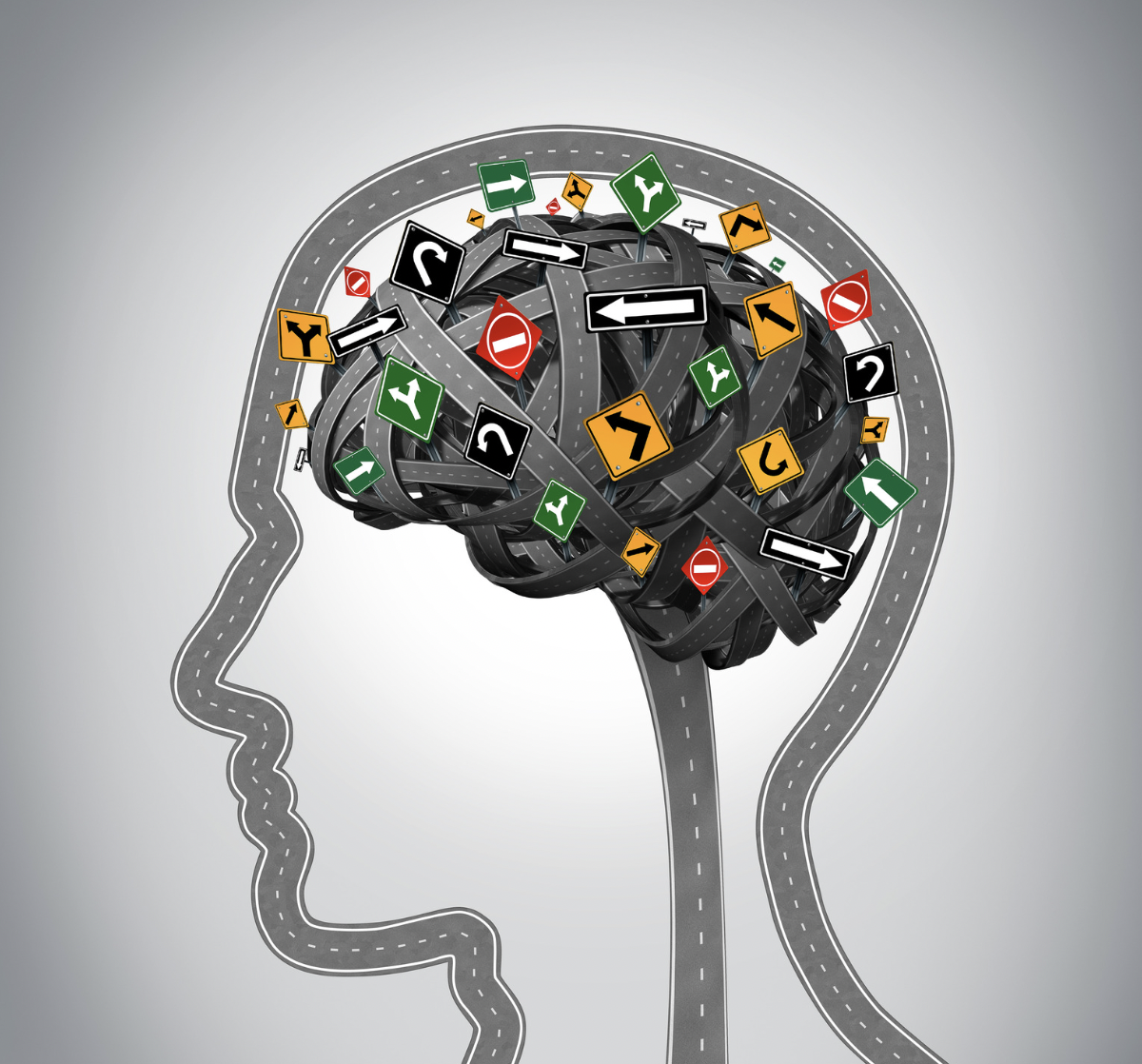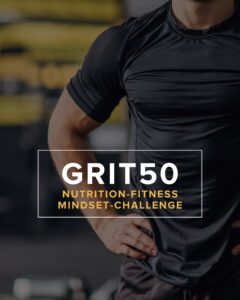August 8, 2023
I know you’ve probably heard this before, but you need to hear it again…
STRESS impacts your goals far more than you probably think – even if you don’t really feel stressed.
Sometimes feeling stressed becomes so normal that we don’t even realize we’re stressed!
[🤯 insert mind blow]
If you’re doing all the things – hitting the gym, diligently following your nutritional plan, staying hydrated… yet the scale isn’t moving, it could be that stress is indeed at the root of the issue.
Specifically, it’s the very real physiological impacts on your energy, metabolism, hormones, and hunger that stress causes. It’s real and it can sabotage even the best of diets.
So what can you do about it?
Well, if you’ve hung around us here at BUILD long enough, you know we’re all about the science and education – because the more you know, the more you do. When you can understand what’s going on INSIDE your body, it typically makes implementing change to turn it around more’ doable’. So let’s dive in with a little education.
1. Your Brain on Stress
Stress can significantly impact the decision-making region of the brain, known as the prefrontal cortex. The prefrontal cortex is a crucial part of the brain’s frontal lobes and plays a central role in executive functions, which include planning, decision-making, impulse control, and goal-oriented behavior. This area of the brain is responsible for weighing (no pun intended) options, considering consequences, and making thoughtful choices.
When you experience stress, particularly acute or chronic stress, several physiological and neurochemical changes occur that can interfere with the prefrontal cortex’s optimal functioning, even so far as reducing blood flow to the brain and impaired memory capacity!
- CORTISOL RELEASE: Cortisol is often referred to as the “stress hormone” because it’s released in response to stressors. Elevated cortisol levels can impair the prefrontal cortex’s ability to regulate emotions, think rationally, and make informed decisions.
- ALTERED NEURAL CONNECTIONS: Chronic stress can lead to changes in the structure and connectivity of neurons in the prefrontal cortex. These changes may disrupt the communication between different areas of the brain involved in decision-making processes.
- NEUROTRANSMITTER IMBALANCE: Stress can alter the balance of neurotransmitters, which are chemical messengers that facilitate communication between neurons. The balance of neurotransmitters like dopamine and serotonin is essential for regulating mood and decision-making. Imbalances can affect how you perceive rewards and consequences, influencing your choices.
In essence, stress can create a “brain fog” that impairs your ability to think critically and make reasoned choices. This is why individuals under significant stress may find themselves making impulsive or irrational decisions that they might not make under less stressful circumstances. Understanding how stress impacts decision-making can help you become more aware of your cognitive state during times of stress. And as we say – awareness creates action.
2. Cortisol & Weight Loss
Cortisol is your body’s primary stress hormone. When stress strikes, cortisol goes into action to elevate the heart rate and boost energy levels to keep your body on high alert so it can fight or flee from whatever the stressor is, be it a real physical threat or a perceived emotional threat.
In the face of consistent stressors (hello real life), your body thinks it’s in a state of perpetual survival mode, resulting in continually elevated cortisol levels. Research indicates a strong connection between heightened cortisol and weight gain/inability to lose weight.
- ENHANCED APPETITE: Cortisol stimulates appetite by accelerating the metabolism of macronutrients. This happens because your brain believes it needs more fuel to combat the stressor at hand.
- FOOD PREFERENCES: Cortisol shapes food selection and consumption, triggering cravings for highly pleasurable foods rich in fat and sugar. This occurs for two suspected reasons:
-
- fats and sugars release dopamine, providing temporary relief from stress-related negative emotions
- with a cortisol-driven need for increased energy in the body, the brain turns on hunger cues and incites cravings for things that’ll provide the quickest source of energy — simple sugars
-
- FAT ACCUMULATION: With high cortisol levels, your energy level increases temporarily. The body requires an outlet for this excess energy. Unfortunately, during stressful times we don’t typically find ourselves hitting the gym. Instead, we’re doing the opposite of working out (ie: Netflix’ing all day). Consequently, your body attempts to soothe itself by releasing insulin, which your heightened cortisol promptly converts into body fat — regardless of what you have or have not eaten. That’s right, in a stressed state, your body is more likely to convert whatever you eat into fat.
3. Stress & Muscle
Oh that pesky cortisol! It not only impacts weight loss, but can also impair the body’s ability to recover from your workouts and build muscle through various physiological mechanisms.
- CONTINUOUS MUSCLE TENSION: When cortisol levels are consistently high due to chronic stress, it can lead to sustained muscle tension. This tension is part of the body’s preparation to respond to potential threats. However, prolonged muscle tension leads to muscle fatigue and even increased risk of injury.
- REDUCED BLOOD CIRCULATION: Cortisol has vasoconstrictive effects, meaning it can cause blood vessels to narrow. When cortisol levels are consistently elevated, this vasoconstriction can restrict blood flow to muscles. Reduced blood circulation can hinder the delivery of oxygen and nutrients to the muscles, impairing their function and performance during exercise. It can also slow down the removal of waste products like lactic acid, contributing to muscle fatigue and discomfort. High cortisol – reduced performance and recovery. Whomp-whomp.
- ACCUMULATION OF LACTIC ACID: Lactic acid is produced as a byproduct of anaerobic metabolism, which occurs when muscles are working hard and the body can’t supply enough oxygen to meet the energy demands. Chronic stress and elevated cortisol levels can lead to increased muscle tension and reduced blood flow, which may limit the oxygen supply to muscles during exercise. This reduced oxygen contributes to anaerobic metabolism and therefore, to the accumulation of lactic acid in the muscles.
- INHIBITED PROTEIN SYNTHESIS: Muscle cells are in a continuous cycle of building and breaking down. Muscle growth materializes when the building process (protein synthesis) surpasses the breakdown process (protein degradation). In the presence of cortisol, muscle cells undergo increased protein degradation. This implies that protein breakdown occurs at a quicker pace than protein synthesis, thwarting muscle growth.
And there’s more.
- COMPROMISED IMMUNITY: When stressed specific body systems, such as the immune system, undergo a shutdown to prioritize the stressor. Elevated cortisol levels prompt the body to decrease the release of white blood cells. These cells are integral to immune function. When your white blood cell count is diminished, your susceptibility to illness increases, prolonging recovery periods and potentially disrupting your valuable gym training time.
Ay ay ay… okay you get it now. Stress is evil and sabotages your goals.
Here’s what can you do about it.
We know that stress can yield you incapable of giving two s^*!s about your goals, never mind making choices that support them.
The body and brain’s default when stressed does not care about your weight loss or fitness goals.
Now, it would be awesome if we could eliminate stress from our lives but we all know that’s not realistic.
The magic bullet solution here is to preemptively create and build HABITS when your body and brain does have the capacity and determination to make goal-supporting choices. Habits eliminate the need for spur-of-the-moment decisions, which often undermine our objectives. Retrain your brain so that when it is stressed, you’re on autopilot and will be more likely to take goal-supporting action to reduce those physiological impacts of a stressed body.
Here are seven ways to do that:
1. Practice optimal nutrition
and follow your plan to the letter when life is smooth sailing! The more you can nail down repetitive food behaviours, the more you’ll continue with them even during the rocky, stressed times. Wanna get super sciencey with the specific nutrients and foods that’ll help your body and brain handle stress? Read more here.
2. Add stretching and mobility work
into your programming. Albeit not as exhilarating as hitting one rep maxes in the gym, these should be a part of your exercise plan if stress is sabotaging your weight loss goals.
3. Practice stress management techniques
such as mindfulness, meditation, and deep breathing. If you’re a high-energy go-getter like I am, this is a challenge! But hopefully now that you have the behind-the-scenes look at your body and brain on stress, it’ll provide a little motivation to build this strategy into your day.
4. Sleep like you deserve it
A whole ‘nother important topic to explore here, but indeed sleep plays a massive role in your body’s ability to regulate cortisol levels. Consistently get enough good quality sleep and watch as your body becomes lean and swole!
5. Be flexible with workouts
Exercise is a great way to burn off that extra physical energy in the body that cortisol creates when in that fight-or-flight state. However chronically heightened cortisol renders the body low energy and pushing through high intensity workouts only creates more cortisol in the body, at a time when it’s unable to regulate those levels in the way it’s supposed to. Be okay with adjusting the intensity or type of training when your body needs it. Go for a walk, do a mobility session or yoga instead. You’ll still be working toward your goals, but in a way that helps your body mitigate instead of create more stress hormones.
6. Remember that even a little goes a long way
One of my favorites: “Little by little, a little goes a long way.” You don’t have to drastically overhaul your life here. Even small changes, done consistently, can make a BIG difference over time. I recently dropped 5 lbs of body fat on the InBody Composition Scan (after more than 5 years post-menopause +15 and not being able to shed it no matter what I did!) in six weeks and the only thing I did differently was get outside for fresh air and a walk for an hour every day.
7. Get expert guidance and coaching support to help you with all of the above
Even if just for a little while. It’s human nature. We all thrive with some external support or motivation when it comes to making behaviour change. These changes are worthy ones, an investment in yourself, if you can find a good match for your needs.
Now you know…
Fact #1: Your body and brain is indeed working against your weight loss or fitness goals when in a stressed state.
Fact #2: You can’t avoid stress in your life.
Fact #3: You can build goal-supporting habits that can override the brain and body’s defaults when stressed.
The next time you find yourself stressed and behaving in ways that are misaligned with your goals, keep in mind that there is a rationale, a real physiological phenomenon behind it. Yup, you’re human after all!
The good news is that now you possess the knowledge and the power to turn it around.
Even better news – we can help you do just that!
Our GRIT50 Challenge is designed to help you build fundamental habits that’ll support any weight loss, fitness or health goal you have – including incorporating STRESS MITIGATION strategies like mediation or gratitude journalling – as part of your every day!
The science, all the whys, and best of all – the how-to’s. Every day for 50 days, you’ll have the resources, the how-to’s and the coaching tips in your ear with GRIT50 – so you can build the lifelong habits you need to crush your goals.
Check out GRIT50!
Sources:
1. McEwen, B.S. (2007). Physiology and neurobiology of stress and adaptation: central role of the brain. Physiology Review, 87(3):873-904. 10.1152/physrev.00041.2006.
2. Thau, L., Gandhi, J., & Sharma, S. (2021). Physiology, cortisol. StatPearls Publishing. https://www.ncbi.nlm.nih.gov/books/NBK538239/
3. Quaedflieg, C., Stoffregen, H., Sebalo, I., & Smeets, T. (2019). Stress-induced impairment in goal-directed instrumental behaviour is moderated by baseline working memory. Neurobiology of Learning and Memory, 158: 42–49. https://doi.org/10.1016/j.nlm.2019.01.010
4. Roberts, C., Campbell, I., & Troop, N. (2014). Increases in weight during chronic stress are partially associated with a switch in food choice towards increased carbohydrate and saturated fat intake: Stress food choice weight increase. European Eating Disorders Review, 22(1), 77–82. https://doi.org/10.1002/erv.2264
5. Chao, A., Jastreboff, A., White, M., Grilo, C., & Sinha, R. (2017). Stress, cortisol, and other appetite-related hormones: Prospective prediction of 6-month changes in food cravings and weight: Stress, Cravings, and Weight. Obesity, 25(4), 713–720. https://doi.org/10.1002/oby.21790
6. American Psychology Association. (2018, November 18). Stress effects on the body. https://www.apa.org/topics/stress/body
7. https://www.workingagainstgravity.com/articles/does-stress-affect-weight-loss
Your Body & Brain on Stress, and What To Do About It
The entire contents of this website are based upon the opinions of Build Holistic Nutrition. Please note that Build Nutrition is not a dietitian, physician, pharmacist or other licensed healthcare professional. The information on this website is NOT intended as medical advice, nor is it intended to replace the care of a qualified health care professional. This content is not intended to diagnose or treat any diseases. Always consult with your primary care physician or licensed healthcare provider for all diagnosis and treatment of any diseases or conditions, for medications or medical advice, as well as before changing your health care regimen.
© BUILD NUTRITION 2025. ALL RIGHTS RESERVED. PRIVACY POLICY
Go ahead, creep us on social. You know you want to!



